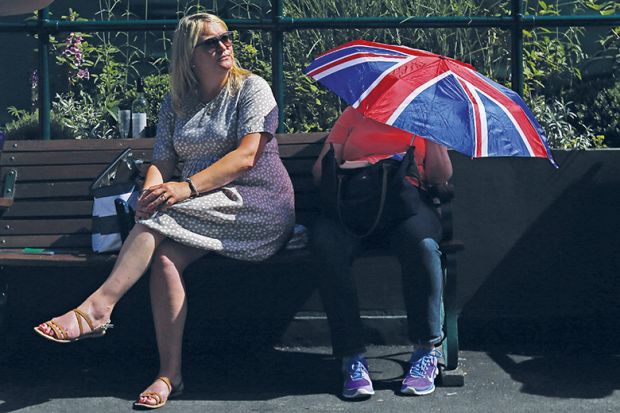European Union policymakers would “have a heart attack” if they knew how many Erasmus students were using their year abroad only to improve their English, according to the author of a new book that examines whether the mobility scheme creates a European identity.
“Linguistic diversity” is a key aim of the current Erasmus+ exchange programme, while more broadly, the EU wants every citizen to be able to learn at least two foreign languages.
But Cherry James, a law lecturer at London South Bank University, found that “virtually everybody used [Erasmus] as an opportunity to improve their English”.
Her forthcoming book, Citizenship, Nation-building and Identity in the EU: The Contribution of Erasmus Student Mobility, set for release on 11 January, includes interviews with many students who studied abroad not to acquire the local language but to brush up on their English.
For example, one Dutch student moved to Sweden for this purpose. A Hungarian student decided to study in Poland to improve her English because the UK proved too expensive.
Dr James – who has been responsible for Erasmus students at London South Bank and has a child who took advantage of the programme – interviewed about 30 students about their experiences.
The failure of Erasmus to promote a range of European languages was its “biggest flaw”, she argued. At most, Erasmus students learned local languages such as Dutch or Hungarian “for shopping” and took the attitude that they were “not going to be of use in the future”, she said.
For Britons studying in Germany, it required “a lot of discipline” not to fall into an English-speaking bubble, Dr James said. “Some of them were not even bothering and just spoke English,” she added.
One problem is that many of the classes attended by Erasmus students are separate from their domestic peers, and are conducted in English, particularly in eastern Europe and the Netherlands, she explained. This is the “famous Erasmus bubble”, where participants are “corralled into classes away from the others [home students],” she said. “This is what the EU would have a heart attack at,” Dr James added.
Many Erasmus students ended up being housed together, away from domestic students, and so defaulted in social situations to their common language, English.
“Students do want to communicate with each other,” Dr James explained. “So many of them were using this as an opportunity to improve their English”.
The European Commission is hoping that Erasmus+ will help promote a “European identity” and has proposed doubling the budget for the next phase of the scheme from 2021-27 (whether the UK will participate is still unclear). In this respect, Dr James’ book contains some conclusions that will please Brussels.
After their year abroad, “most of them felt that they were rooted in Europe and aware of the possibilities”, she said, and added that “they did feel European by virtue of knowing that absolutely key right of freedom of movement”, and had proved to themselves that they could live abroad again in the future.
The experience also bolstered students’ sense of European identity, overlapping with their national identities, Dr James added.
Register to continue
Why register?
- Registration is free and only takes a moment
- Once registered, you can read 3 articles a month
- Sign up for our newsletter
Subscribe
Or subscribe for unlimited access to:
- Unlimited access to news, views, insights & reviews
- Digital editions
- Digital access to THE’s university and college rankings analysis
Already registered or a current subscriber? Login








